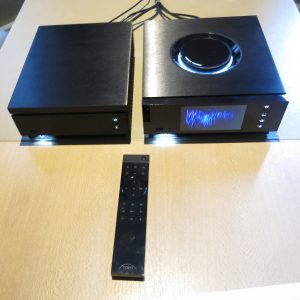 Article
Article
Hi-fi music streaming service Qobuz launches in Australia (themusicnetwork.com)
Qobuz hi-res audio streaming service lands in Australia and New Zealand | TechRadar
From the horse’s mouth
Qobuz
My Comments
Qobuz is a music service that was founded in France in 2007. This service offers sobscription-based music streaming and transactional download-to-own music purchasing but offers these services with Hi-Fi-grade sound. It had existed in Europe for a long time and since 2020, Australians and New Zealanders can use this service to stream or purchase high-quality music.
Here, the music is available using lossless streaming and file formats with CD-quality audio as a baseline and the option for master-grade audio. There is also the ability to download a PDF copy of the album’s liner notes which typically will have lyrics for an album’s songs or a biography and discography in the case of a artist-specific compilation.
The Studio Premium subscription costs AUD$24.99 per month or AUD$229.99 per year which offers up to “master-grade” streaming quality. There is also a more expensive Studio Sublime+ subscription tier costing AUD$299.99 per year which gives you a discounts for “download-to-own” music tracks that you purchase.
There are native clients for Windows, Mac OS, Android and iOS along with the ability to interact with Qobuz through the Web. The Android and iOS apps allow streaming of Qobuz audio through the Apple AirPlay or Google Cast (Chromecast) to endpoint devices compatible with these protocols. Issues that were raised include the desktop apps for Windows and Mac OS regular computers not being available through the operating systems’ native app stores. This may be of issue where the app stores are preferred by some users as a software update path.
As far as other devices are concerned, there is support for Sonos speakers and some network-capable hi-fi equipment, usually some of the premium hi-fi brands like Sony, Yamaha, Linn or Naim. But none of the popular games consoles, smart speakers or smart TVs don’t support Qobuz yet in a native manner.
But the omission of synchronous lyrics or music videos on Qobuz is more about focusing this service to music listening. This is similar to how most of us would be listening to our music whether on packaged media like vinyl or CD; or as file-based audio and we either want it in the background or to concentrate on the actual music.
There will still be calls for interlinking Qobuz, Deezer and Tidal with music-recognition services or the Shazam or Soundhound kind so people who hear songs on the radio for example can bring them up on these high-quality services. Similarly, there will be the need to make curated playlists available across multiple platforms through the use of a standard datatype and export / import abilities.
At least Qobuz is coming to the fore as a high-quality file-based audio service that offers both a subscription-based streaming approach and a transactional download-to-own approach for your music.


